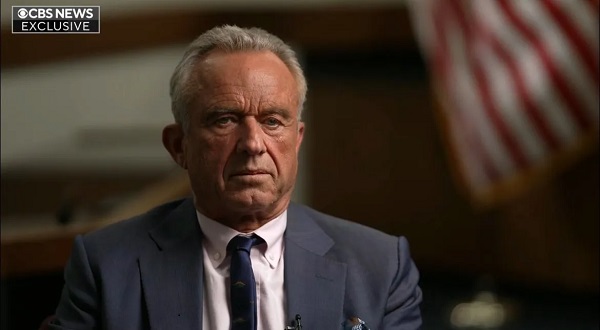Business
Disney cancels series four years into development, as it moves away from DEI agenda

 MxM News
MxM News
Quick Hit:
Disney’s decision to cancel its planned ‘Tiana’ streaming series follows the entertainment giant’s move away from diversity, equity, and inclusion (DEI) policies. The company, once deeply committed to political activism, is now struggling to recover from years of financially disastrous content choices.
Key Details:
-
Disney announced the end of DEI-based management decisions and the winding down of its “Reimagining Tomorrow” initiative earlier this year.
-
The Hollywood Reporter revealed that the cancellation of ‘Tiana’ was part of Disney’s broader retreat from “original longform content for streaming.”
-
Analyst Ian Miller notes that Disney’s prior focus on political messaging rather than quality content led to repeated box office failures.
Diving Deeper:
Disney has spent the past several years prioritizing political activism over storytelling, leading to a sharp decline in the company’s financial performance and audience engagement. According to Ian Miller of OutKick, “Disney assumed that any content that represented ‘diverse’ audiences or featured ‘diverse’ characters would be successful.” That assumption, he argues, proved costly.
The decision to cancel ‘Tiana’ comes at a time when Disney is reeling from multiple box office disappointments, including the expected failure of ‘Snow White’ and the ongoing struggles of both Marvel and Lucasfilm properties. Miller highlights the alarming trend, stating, “Marvel’s ‘Captain America: Brave New World’ may actually lose money, with a disastrous $342 million worldwide gross through the first three and a half weeks.”
The ‘Tiana’ series was first announced in December 2020, a time when Disney was fully embracing its progressive agenda. The Hollywood Reporter noted that the show struggled to find its creative direction despite being in development for over four years. Miller suggests that, in the past, Disney would have continued with such a project regardless of its quality, out of fear of backlash from the left. “Under its prior operating mandate, Disney would have pushed forward anyway, believing that canceling a show based on a black character would be unacceptable to left-wing critics,” Miller writes.
However, the company’s recent shift suggests an overdue recognition that audiences ultimately demand quality over ideology. As Miller points out, “Parents want to take their kids to the movies, or give them family-friendly content to watch at home when they need a distraction. For decades, that meant Disney. Until the company prioritized targeting demographics instead of quality.”
While Disney appears to be learning from its missteps, the road to recovery will be long. As Miller emphasizes, the key to regaining audience trust isn’t to abandon diverse characters but to “get it right instead of doing it to check a box.”
Business
Musk Slashes DOGE Savings Forecast By 85%


From the Daily Caller News Foundation
By Thomas English
Elon Musk announced Thursday that the Department of Government Efficiency (DOGE) is now targeting $150 billion in federal savings for fiscal year 2026 — dramatically scaling back earlier claims of slashing as much as $2 trillion.
Musk initially projected DOGE would deliver $2 trillion in savings by targeting government waste, fraud and abuse. That figure was halved to $1 trillion earlier this year, but Musk walked it back again at Thursday’s Cabinet meeting, saying the revised $150 billion projection will “result in better services for the American people” and ensure federal spending “in a way that is sensible and fair and good.”
“I’m excited to announce we anticipate saving in FY ’26 from a reduction of waste and fraud a reduction of $150 billion dollars,” Musk said. “And some of it is just absurd, like, people getting unemployment insurance who haven’t been born yet. I mean, I think anyone can appreciate — I mean, come on, that’s just crazy.”
The announcement marks the latest in a string of revised projections from Musk, who has become the face of President Donald Trump’s aggressive federal efficiency agenda.
“Your people are fantastic,” the president responded. “In fact, hopefully they’ll stay around for the long haul. We’d like to keep as many as we can. They’re great — smart, sharp, finding things that nobody would have thought of.”
Musk originally floated the $2 trillion figure during campaign appearances last fall.
“I think we could do at least $2 trillion,” Musk said at the Madison Square Garden campaign rally in November. “At the end of the day, you’re being taxed — all government spending is taxation … Your money is being wasted, and the Department of Government Efficiency is going to fix that.”
By January, he softened expectations to a “really quite achievable” $1 trillion target before downsizing that figure again this week.
“Our goal is to reduce the deficit by a trillion dollars,” Musk told Fox News’ Bret Baier “Looked at in total federal spending, to drop the federal spending from $7 trillion to $6 trillion by eliminating waste, fraud and abuse … Which seems really quite achievable.”
DOGE’s website, which tracks cost-saving initiatives and contract cancellations, currently calculates total federal savings at $150 billion.
2025 Federal Election
Taxpayers urge federal party leaders to drop home sale reporting to CRA

Party leaders must clarify position on home equity tax
The Canadian Taxpayers Federation is calling on all party leaders to prove they’re against home equity taxes by pledging to immediately remove the Canada Revenue Agency reporting requirement on the sale of primary residences.
“Canadians rely on the sale of their homes to pay for their golden years,” said Carson Binda, CTF B.C. Director. “After the government spent hundreds of thousands of dollars flirting with home taxes, taxpayers need party leaders to prove they won’t tax our homes by removing the CRA reporting requirement.”
Right now, the profit you make from selling your home is exempt from the capital gains tax. However, in 2016, the federal government mandated that Canadians report the sale of their homes to the CRA, even though it’s tax exempt.
The Canada Mortgage and Housing Corporation also spent at least $450,000 to study and influence public opinion in favour of home equity taxes. The report recommended a home equity tax targeting the “housing wealth windfalls gained by many homeowners while they sleep and watch TV.”
“A home equity tax would hurt seniors saving for their golden years and make homes more expensive for younger generations,” Binda said. “If the federal government isn’t planning on imposing a home equity tax, then Canadians shouldn’t be forced to report the sale of their home to the CRA.”
-

 2025 Federal Election2 days ago
2025 Federal Election2 days agoRCMP memo warns of Chinese interference on Canadian university campuses to affect election
-

 2025 Federal Election1 day ago
2025 Federal Election1 day agoResearchers Link China’s Intelligence and Elite Influence Arms to B.C. Government, Liberal Party, and Trudeau-Appointed Senator
-

 COVID-191 day ago
COVID-191 day agoFauci, top COVID officials have criminal referral requests filed against them in 7 states
-

 COVID-1916 hours ago
COVID-1916 hours agoCDC Vaccine Safety Director May Have Destroyed Records, Says Sen. Ron Johnson
-

 Internet15 hours ago
Internet15 hours agoUS government gave $22 million to nonprofit teaching teens about sex toys: report
-

 Health1 day ago
Health1 day agoRFK Jr. Shuts Down Measles Scare in His First Network Interview as HHS Secretary
-

 2025 Federal Election9 hours ago
2025 Federal Election9 hours agoWhat Trump Says About Modern U.S. And What Carney Is Hiding About Canada
-

 Business1 day ago
Business1 day agoTimeline: Panama Canal Politics, Policy, and Tensions










